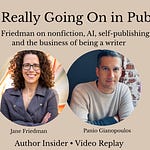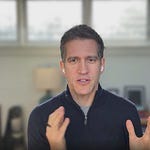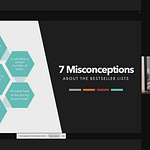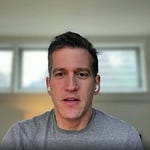Hello, and welcome back to Author Insider!
Today, I’m excited to bring you a conversation with Daniel Pink, author of seven New York Times bestsellers, including Drive, To Sell Is Human, The Power of Regret, and When: The Scientific Secrets of Perfect Timing. In his work, Dan taps into a wealth of social science research to uncover proven and often counter-intuitive insights (like extroverts don’t make the best salespeople — take that, social butterflies!)
More than anything, Dan is a working writer, sitting at his desk day after day and knocking out pages. (He describes himself as “99 percent tortoise, 1 percent hare.”) So if you’ve ever wrestled with balancing passion projects with financial realities or waited fruitlessly for inspiration to strike, Dan has been there — and he’s got practical, spouse-approved advice.
In this edition of Author Insider, you’ll learn how Dan took the leap from the security of a political speechwriting job to writing bestsellers on his own terms, explore his time-tested writing habits, and discover his surprising optimism about navigating the “preposterously winner-take-all” publishing industry. Plus, find out why Dan thinks authors should stop sleeping on YouTube, and how genuine reader engagement can transform your writing career.
Ready? Let’s dive in.
“You might like this more than what you’re doing.”
Daniel Pink’s path to becoming an author wasn’t direct. With a background in law and politics, including work as a speechwriter for Al Gore, Dan eventually found himself drawn to writing as a side hustle. Then came a pivotal moment of realization.
“I was always kind of writing on the side,” Dan explains. “I would write newspaper articles. I would write columns and things like that. And I did it truly for fun.”
One day, when Dan was in his early thirties, his wife pointed out: “You’re doing this thing on the side. You’re working at midnight writing articles, and you’re not getting paid for it. And you keep doing this over and over and over. You might like this more than what you’re doing.”
She was right.
Dan quit his speechwriting job, and turned to writing for himself — writing what he wanted to write about, in his own voice — full-time.
“There was no guarantee that it was going to work.”
Dan’s approach to the financial aspects of a writing career demonstrates remarkable pragmatism. When transitioning from a stable job to the uncertain world of writing, he took several calculated steps:











